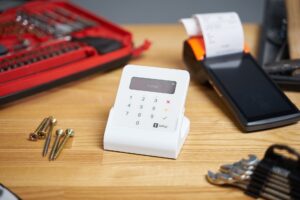Despite the name, running a small business is no small task.
Operating as a small business has it’s advantages and disadvantages. One of the downsides being that you often end up doing everything yourself. Any practices or habits that you can implement into your daily operations that might take a bit of weight off your shoulders are in your best interest. That’s why we’ve compiled a list of 10 small business bookkeeping tips that will hopefully help make life easier while tackling your finances.
1. Develop an efficient system
Develop a bookkeeping system that works for you. Set up a consistent system for organizing your financial documents, such as invoices, receipts, and bank statements. This will make it easier for you to retrieve information when needed and ensure nothing gets missed.
2. Keep track of expenses
Make sure you are keeping track of all income and expenses. Maintaining a detailed record of all the money coming into and going out of your business is super important. Making use of accounting software or spreadsheets to do this will make your life much easier and help lighten your workload. There are countless software options available including options from Xero and Sage.

3. Develop a budget
Develop a budget that outlines your projected income and expenses. This will help you monitor your cash flow, make informed decisions, and identify areas where you can cut costs or have more money to play with.
4. Keep personal finances separate
If you are operating as a sole trader, it’s important to make sure you separate personal and business finances. Open a separate business bank account so your personal and business transactions aren’t mixed up. This will make bookkeeping and tracking expenses from your business a much simpler and tidier process.
5. Regularly reconcile
Regularly reconcile your bank accounts, credit card statements, and other financial statements. This ensures that your records match the actual transactions and will help you to identify any discrepancies or errors. Staying organised with this will help you avoid a lot of unnecessary stress while handling your bookkeeping.
6. Categorise expenses
Categorising your expenses will help you accurately understand where your money is going. Having organised expense records will make it easier for you to analyse spending patterns, identify tax deductions, and make informed financial decisions.
7. Stay on top of invoicing and payments.
Make sure you send out invoices promptly and follow up on outstanding payments. We know it can be a bit of a headache, but it will save you a lot of hassle in the long run.
8. Regular Reviews
Regularly review your cash flow statement so that you know exactly what’s going on with your business’ financials. This will help you anticipate any cash flow challenges and make sure you are prepared to deal with them.
9. Detailed and organised records
Maintaining detailed and organized records of your income and expenses will make your life far easier when it comes to doing your taxes. It will also mean you a much less likely to miss out on any tax deductions that you can take advantage of.
10. Consider outsourcing
If you already have enough on your plate and want to save yourself the hassle altogether, consider outsourcing. At Momentum Bookkeeping we’ve got years of experience under our belt dealing with businesses of all sizes handling everything from bookkeeping to payroll. When it comes to bookkeeping for your small business it’s important it is done right. Give yourself one less thing to worry about and let us take your bookkeeping off your hands.

Momentum Bookkeeping Ltd
Mentieth House, 29 Park Circus, Glasgow, G3 6AP
Call. 0141 375 1240
Email. info@mvbooks.co.uk





